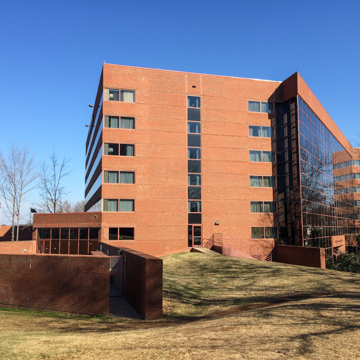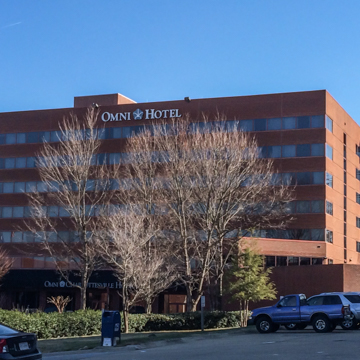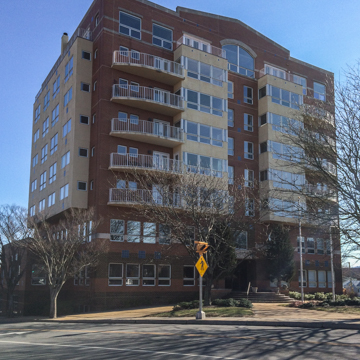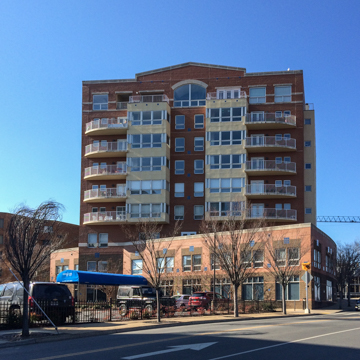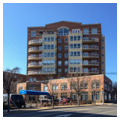A group of undistinguished modern buildings that replaced houses in the former Vinegar Hill neighborhood illustrates the problem of civic design. At the east end sits the minimalist and atrocious Omni Hotel (c. 1980, Smallwood, Reynolds, Stewart, and Stewart), 235 West Main Street, designed by a firm from Atlanta. Next door is the U.S. Courthouse and Federal Building (1982, Romweber Bornhorst), 255 West Main Street, which amply demonstrates the low level to which federal design sank in the 1980s. Designed by a Cleveland firm, it was developed as a speculative office building, which the government leases. The building has no redeeming qualities. Across from the courthouse is the awkward postmodern Lewis Clark Apartments (1990, VMDO), 250 West Main Street. Near the center of the intersection is the Lewis and Clark Monument (1919, Charles Keck), a sculptural grouping in which Sacajawea appears to crouch behind the explorers.
You are here
200 Block of West Main Street
If SAH Archipedia has been useful to you, please consider supporting it.
SAH Archipedia tells the story of the United States through its buildings, landscapes, and cities. This freely available resource empowers the public with authoritative knowledge that deepens their understanding and appreciation of the built environment. But the Society of Architectural Historians, which created SAH Archipedia with University of Virginia Press, needs your support to maintain the high-caliber research, writing, photography, cartography, editing, design, and programming that make SAH Archipedia a trusted online resource available to all who value the history of place, heritage tourism, and learning.

